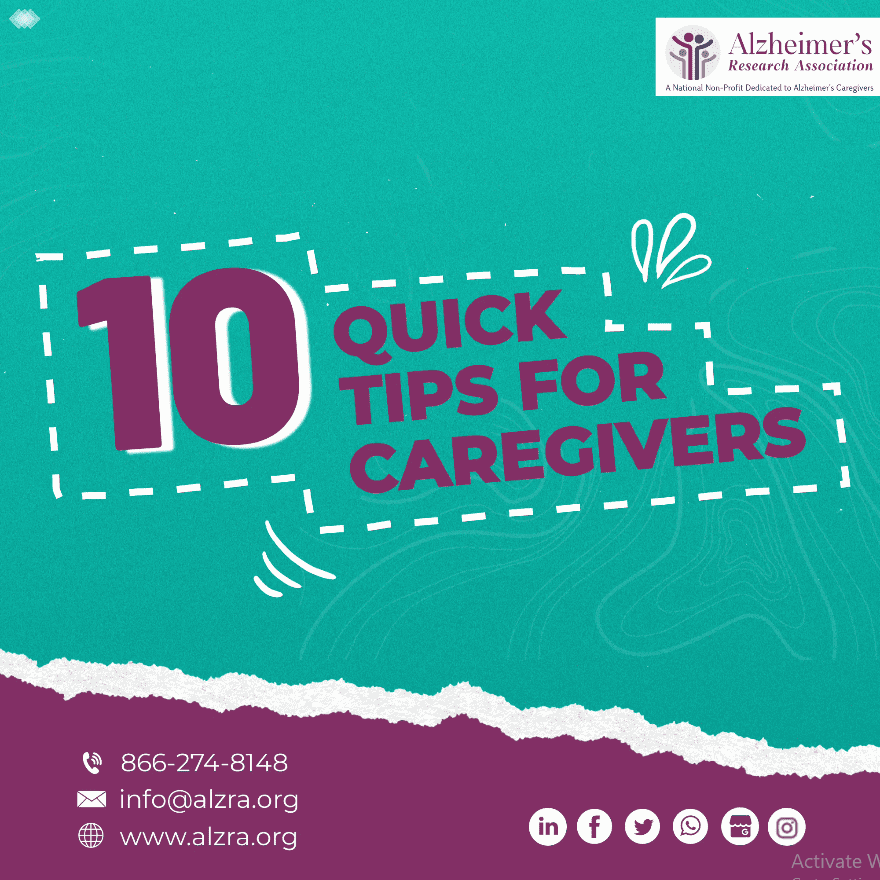Alzheimer’s Research Association
Committed to helping the caregivers and the families struggling with dementia and Alzheimer’s disease.
The Alzheimer’s Research Association is a 501(c)(3) non-profit organization dedicated to bringing the latest in innovation and technology in order to help support the caregivers and their families struggling with dementia and Alzheimer’s. Our goal is to make the life of the caregiver easier by providing educational materials, support services and grants.
Our purpose is to offer Alzheimer’s awareness by providing numerous resources including the latest research and news that will help caregivers whose family members are struggling with dementia and Alzheimer’s disease. Our mission includes supporting caregivers with grants from donations that will help them cope with the physical, emotional, and financial challenges associated with being a caregiver.
We here at the Alzheimer’s Research Association are either currently or have been caregivers to Alzheimer’s patients in the past. Through our experiences and our research, we hope to provide a place to turn to for the answers to your most important questions regarding the care for those with Alzheimer’s.
10 Tips for Caregivers

Some of the Donations received in last few years
-
Anonymous
2025 $500
-
Roger
2024 $200.00
-
Anonymous
2024 $3500.00
-
Augie
2024 $175.00
-
Bill
2024 $150.00
-
Jackie
2024 $500.00
-
Ronald
2024 $250.00
-
Fidelity
2023 $4000.00
-
Ida
2023 $36.00
-
Amalia
2023 $250.00
-
John
2023 $50.00
-
Chris
2022 $15.00
-
Juwan
2022 $100.00
-
Family
2022 $50.00
-
Lorraine
2022 $750.00
-
Tiffany
2022 $100.00
-
Family
2021 $500.00
-
Maria
2021 $35.00
-
Anya
2021 $75.00
-
Jacqueline
2020 $ 35.00
-
Tiffiny
2020 $ 10.00
-
Matthew
2020 $ 15.00
-
Edward
2020 $ 5.00
-
Elizabeth
2020 $ 40.00
-
Karen
2020 $75.00
-
Valerie
2020 $25.00
-
Eric
2020 $200.00
-
Laura
2020 $100.00
Frequently
Asked Questions
Have a question? We may already have answered here. If not,
you can always contact us by e-mail at sandy.lucido@gmail.com
We are an 501(c)(3) non-profit organization dedicated to helping the caregivers of dementia and Alzheimer’s disease. It is our mission to provide you with the right information, and to keep you up to date with the latest Alzheimer’s news and reports. We are devoted to helping your caregiving experience with educational materials, support services, and grants.
The Alzheimer’s Research Association is not in a competition with the various organizations that dedicate themselves to the race for a cure, but aims to complement them by focusing our efforts on the caregiver.
Translational research creates a bridge between basic research and clinical research, allowing knowledge from the laboratory to be applied as quickly as possible to new clinical tests or interventions. In fact, translational research is where new drugs, devices, or behavioral interventions all aimed at preventing, diagnosing, or treating a disease such as Alzheimer’s are actually created. Translational research makes it possible for scientists who conduct basic research on Alzheimer’s to work more closely with experts whose focus it is on treating people. This collaboration is important in developing both safe and effective Alzheimer’s therapies and treatments.
Basic biomedical research involves studies at the most fundamental level. This research helps scientists gain new knowledge about a disease process, including how and why it starts and the way in which it progresses. Scientists who conduct basic research on Alzheimer’s disease study the cellular and molecular processes which cause nerve cells in the brain to stop functioning and subsequently die. Basic research also looks at the role that genes may play in lessening or increasing a person’s risk of developing the disease. The primary aim of basic research is to identify the processes that lead to Alzheimer’s in order to discover therapies to fight it. In short, basic research contributes significantly to Alzheimer’s awareness studies and research.
Today, no treatment can stop Alzheimer’s disease. However, four drugs are used to treat symptoms of the disease. They may help to maintain critical thinking, memory, and speaking skills and as well as help with some behavioral problems for a limited time. These Alzheimer’s drugs work by regulating certain chemicals in the brain.
For people with mild or moderate Alzheimer’s, donepezil (Aricept®), rivastigmine (Exelon®), or galantamine (Razadyne®) may help prevent some symptoms from becoming worse for a limited time. Donepezil is also approved for symptoms of moderate to severe Alzheimer’s. Another drug, memantine (Namenda®), is used in treating symptoms of moderate to severe Alzheimer’s, although it is also limited in its effects.
All of these Alzheimer’s medications have potential side effects, including nausea, vomiting, diarrhea, and loss of appetite. You should report any unusual symptoms to a doctor right away. It is important to follow a doctor’s instructions exactly when taking any medication.
The course of Alzheimer’s disease — which symptoms appear and how quickly changes occur — varies from person to person. In general, however, the disease develops slowly and follows the same mild, moderate, and severe stages.
At first, the only noticeable symptom may be forgetfulness. People with mild Alzheimer’s might be unable to remember recent events, ask the same question repeatedly, and become lost in familiar places. A person may seem healthy but in reality is actually having more and more trouble making sense of the world around him or her. Such difficulties could be due to Alzheimer’s disease or another condition. A doctor should always be consulted to make a diagnosis.
As the disease progresses, memory becomes worse. People may even have difficulty in recognizing family or friends, and it can be difficult to learn new things. People in this moderate stage of Alzheimer’s may behave differently, too. For example, they might be restless, agitated, and angry, or they may wander.
As Alzheimer’s disease reaches a severe stage, people sometimes lose the ability to communicate. They may sleep more, lose weight, and have trouble swallowing. Often, they cannot control their bladder and bowel. Eventually, they will need total care.
The time from diagnosis of Alzheimer’s to the end of life varies. Life expectancy with Alzheimer’s can be as little as three years if the person is over 80 years old when diagnosed, or as long as ten years—or even longer—if the person is younger than 80 when diagnosed.
Today, the only definitive way to diagnose Alzheimer’s disease is to find out whether there are plaques and tangles in brain tissue. In order to look at brain tissue, doctors perform a brain autopsy, which is an examination of the brain done after a person dies.
Doctors can only make a diagnosis of “possible” or “probable” Alzheimer’s disease while a person is alive. Doctors with special training are able to diagnose Alzheimer’s disease correctly up to 90 percent of the time. These include board-certified geriatricians, geriatric psychiatrists, and neurologists. (A geriatrician specializes in treatment of older adults, and a neurologist specializes in both brain and nervous system disorders.)
Doctors use several tools for Alzheimer’s diagnosis:
- a complete medical history, with questions about the person’s general health, past medical problems, family health, and any difficulties carrying out daily activities
- medical tests, such as tests of blood, urine, or spinal fluid
- tests to measure memory, problem solving, attention, counting, and language skills
- brain scans that allow the doctor to look at a picture of the brain to see if anything does not look normal








